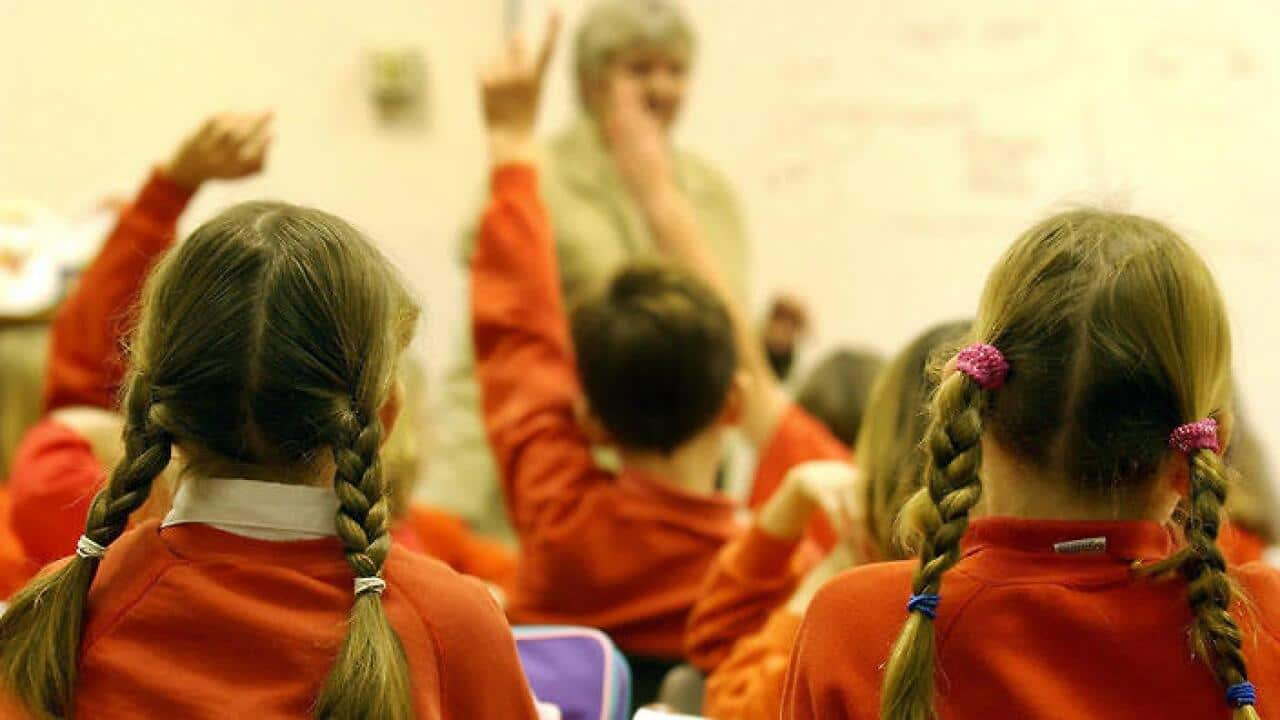The Greens have announced a $50 million plan to increase the ability of migrants and new arrivals to Australia to access English language support.
Central to the plan is a bid to “save” the Adult Migrant English Program (AMEP), which provides migrants up to 510 hours of English tuition to help them settle in the country.
The AMEP has been in operation since 1948, but contracts began being outsourced to various providers in the states and territories in 1997.
The quality of the program has suffered since then and there is no longer any national leadership, Greens education spokeswoman Mehreen Faruqi said.
“This privatisation model has failed. The program has become about money, not migrants,” Senator Faruqi told SBS News.
Senator Faurqi said what happened with an AMEP provider in the New South Wales town of Bega last year demonstrates why the model needs fixing.
"The TAFE NSW which ran the AMEP in Bega lost the contract in June last year to a private provider who are now closing down. There will now be no program in that area," she said.
“We must make sure that we have an urgent review of the program and reverse the outsourcing of services.” Currently, for someone to access the AMEP, they must be either permanent resident of Australia . In addition, they must register with an AMEP service provider within six months of arriving in Australia, commence tuition within 12 months and complete the tuition within five years.
Currently, for someone to access the AMEP, they must be either permanent resident of Australia . In addition, they must register with an AMEP service provider within six months of arriving in Australia, commence tuition within 12 months and complete the tuition within five years.

Greens Senator Mehreen Faruqi Source: David Foote/Auspic
The criteria is slightly more lenient for people under 18 years of age.
Approximately 60,000 people at 270 locations across Australia receive help via the program each year, according to the Department of Education and Training.
The Greens also want to arrest the high rate of school dropouts among new arrivals – particularly those with refugee background – by upscaling the Department of Social Services’ (YTS) initiatives.
found secondary school completion rates for refugee students - many who had their schooling disrupted, or could not go to school at all - were significantly lower (62 per cent) than for other Australians (86 per cent).
Many refugees who arrive in Australia have not had the opportunity attend school before, according to the Asylum Seeker Resource Centre (ASRC).
Many live with conditions such as post-traumatic stress disorder as a result of their journeys, and thus find it difficult to learn new skills, such as languages, according to the centre. Abiola Ajetemobi, the director of the ASRC’s Innovation Hub, said it is crucial new arrivals to Australia are given every opportunity to increase their English skills.
Abiola Ajetemobi, the director of the ASRC’s Innovation Hub, said it is crucial new arrivals to Australia are given every opportunity to increase their English skills.

Yazidi Refugees learning English at a TAFE Institute in NSW Source: SBS Arabic 24
“People seeking asylum, refugees and migrants alike, they have the level of skills, talent and ability to call Australian home - but often English is found (to be) a big barrier,” she told SBS News.
Ms Ajetemobi, a refugee from Nigeria, said she too struggled to learn English when first arriving in Australia 11 years ago.
“Having language proficiency below the expected level really impacts on someone’s ability to safely and meaningfully contribute to society,” she said. Senator Faruqi said the failure to coordinate a "proper" English language tuition system has left Australia's refugee and migrant communities at risk of being left behind.
Senator Faruqi said the failure to coordinate a "proper" English language tuition system has left Australia's refugee and migrant communities at risk of being left behind.

Newly arrived refugees learning English in Wagga Wagga Source: SBS
“The cost of an English program that is holistic and that provides support to migrant communities is actually not a cost - it is an investment,” she said.
“Basic access to education and employment comes through language. That is the real critical importance of these programs.”
The Greens are not the only party to make language-based pledges ahead of next month’s federal election.
The Coalition announced in April’s federal budget its intent to set aside $12.6 million over three years to establish a program to support community language schools.
“A quarter of Australian children and teenagers speak a language other than English at home,” Immigration Minister David Coleman said. “We also know that learning community languages leads to better social and education outcomes for Australian children.”
In February, , if it wins the election.
“If we can get in early and ensure that our children are bilingual from an early age, that is a gift to them that lasts a lifetime,” Labor Education spokeswoman Tanya Plibersek told SBS News at the time.



